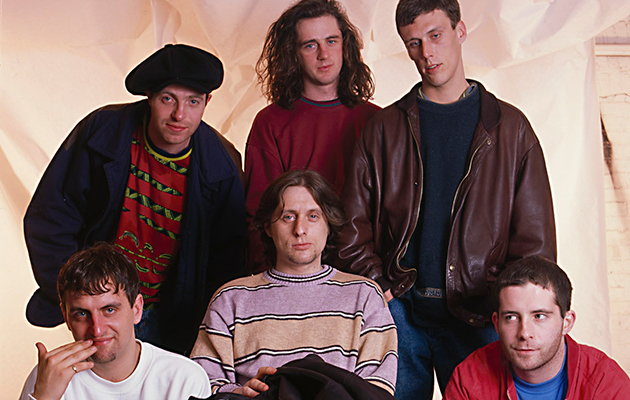Subscribe to Uncut and make huge savings on the cover price – find out by clicking here! Originally published in Uncut's Take 157 It started out as a trenchant political protest song by two white South African folkies, a song that drew parallels between the oppression of black South Africans and...
Subscribe to Uncut and make huge savings on the cover price – find out by clicking here!
Originally published in Uncut’s Take 157
It started out as a trenchant political protest song by two white South African folkies, a song that drew parallels between the oppression of black South Africans and the genocide of Native Americans. It ended up in the hands of a bunch of fried Scallies and a south London wide-boy producer who turned it into an Ecstasy-soaked dance classic, the acme of early-’90s Madchester.
The Happy Mondays, who recorded it just as they were on the verge of being the biggest band in Britain, didn’t even want to do it at the time, but ended up having their arms gently twisted by their late, great mentor Tony Wilson. In the end everyone was seduced by the track, one that kicked off with an Italo-house piano fanfare, a thunderous funk shuffle, an incendiary guitar riff and Shaun Ryder’s random exhortations to “call the cops”. And it set the tone for their following LP, Pills’N’Thrills And Bellyaches.
Even the lyrical observations – about how the oppressor “can make you forget you’re a man” – became retooled for the ’90s dancefloor. Instead of being about the dehumanising effect of racism, it morphed into a reflection of the way in which psychotropic drugs can break down divides of race, gender and sexuality. As Shaun Ryder observed: “I suppose it’s about how Ecstasy made the white man dance, innit?”
_______________________
SHAUN RYDER (vocals): The initial thing was that Elektra, our record company in America, wanted us to do a cover version of a song by an Elektra recording artist for this fucking tribute album they were putting together, to commemorate 40 years of their label. They sent us a shit load of tunes on tape. “Tokoloshe Man” was the first one and “Step On” was the second. I don’t think we got past those two. At first we just said, “Fuck off, no, we’re not doing it, we don’t do covers. We haven’t got time ’cos we’re writing our own gear.” But Tony [Wilson] was saying, “Hey lads, let’s just do it, it’ll keep us nice with the American label.” He said it wasn’t going to be coming out in England, just on a compilation in America.
GAZ WHELAN (drums): It wasn’t our idea, it was Tony Wilson who convinced us. We all got given Omega watches from Elektra, who were being nice to us. The initial idea was that we did “Tokoloshe Man”. That was quite easy, it was a tribal riff, based around a single chord. After we did it, Tony suggested we do “Step On”, as it was next on the tape of suggestions Elektra gave us. So we played it in the studio once, and it seemed like a good idea.
JOHN KONGOS (co-writer): These were two big hits I had in 1971. They were co-written with a fellow South African called Chris Demetriou, my musical partner for many years. Me and Chris moved to London together in around 1967, but Chris had written the lyrics for “He’s Gonna Step On You Again” when we were living in South Africa. It started out as a protest song about the political situation under apartheid, and it was drawing connections between that and the abuse of the Native Americans. So we had that Native American theme running through it, those drums, the lyrics and that strong guitar riff. The lyrics are still very political.
Like us on Facebook or follow us on Twitter to keep up to date with the latest news from Uncut.



